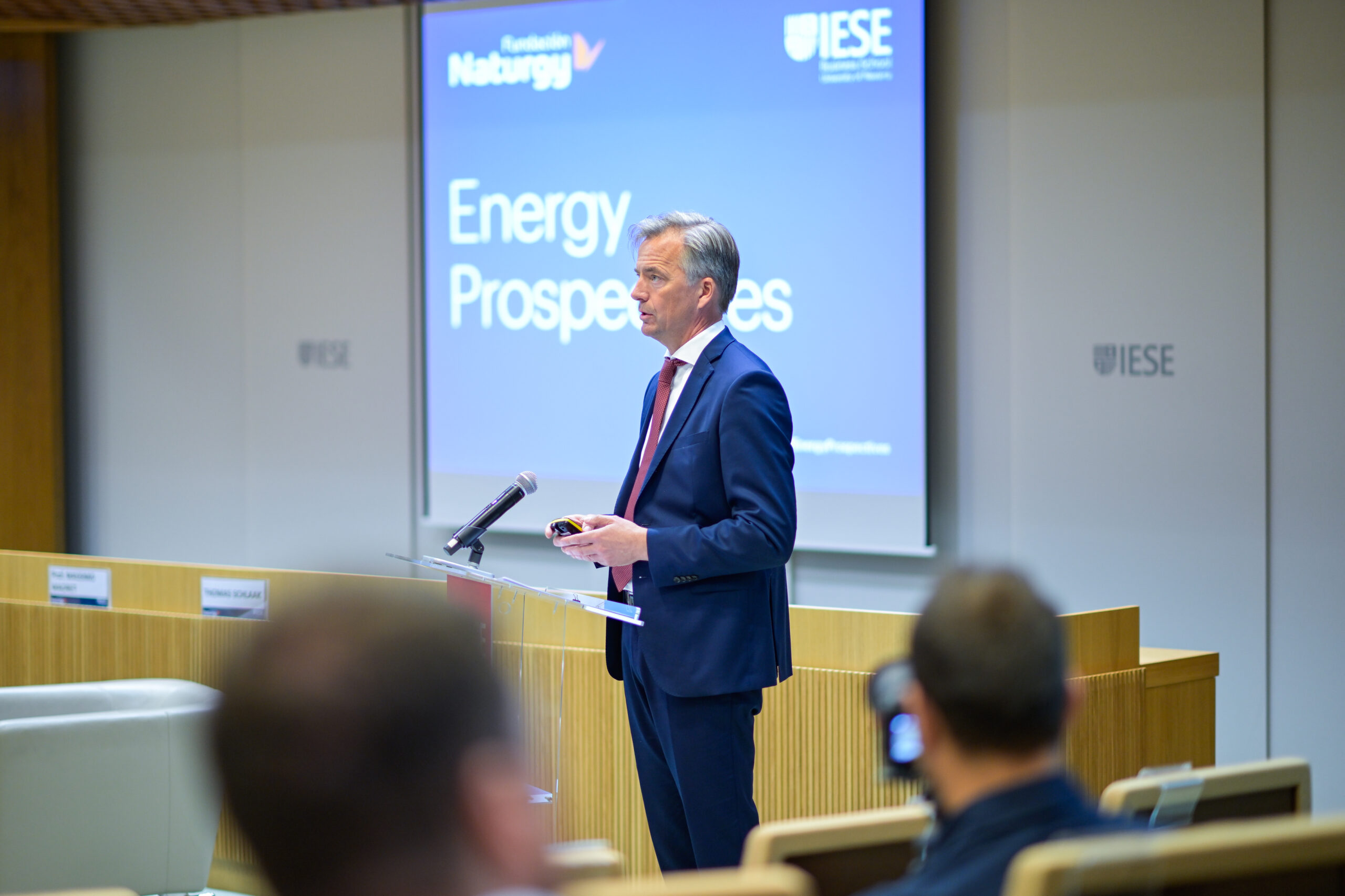Global experts from S&P and Deloitte favour tech neutrality to reach decarbonisation goals
Carlos Pascual, senior vice president of Global Energy and International Affairs at S&P Global Commodity Insights, and Thomas Schlaak, global leader of the Power, Utilities and Renewables (PU&R) sector at Deloitte, discussed the global challenges posed by the energy transition at an event organized by the Naturgy Foundation and the IESE Business School.

Carlos Pascual, senior vice president of Global Energy and International Affairs at S&P Global Commodity Insights, and Thomas Schlaak, global leader of the Power, Utilities and Renewables sector at Deloitte, took part in the 14th edition of the Energy Prospectives conference series. This edition focused on the global challenges in the world’s energy transition.
Schlaak emphasized the interplay between industrialisation and energy transition in his presentation. He stressed the need for administrations to translate strategic goals into realistic and actionable plans. Schlaak also advocated for technological neutrality, as “no single tech option is enough, and called for “patience”. “Accelerating the ambitious plans of the EU beyond reason might not be wise. Such acceleration could paradoxically impede progress by jeopardizing the social acceptance needed for a smooth transition,” he said.
Considering different scenarios for Europe’s climate targets, the Deloitte expert predicts the growth and prevalence of various renewable energies, a higher degree of electrification, and emphasises that “gas and biomass power plants will remain crucial for providing the necessary flexibility”. He echoed Pascual’s viewpoint, affirming that “natural gas is a vital tool in easing the global energy transition process” from a global point of view.
Regarding the development of renewable gases, Schlaak predicts a significant rise in biomethane production in Europe, partially substituting natural gas. Regarding hydrogen, he stated that “assuming all currently existing hydrogen projects in Europe are implemented, the target of producing 10 million tonnes of renewable hydrogen would not be met.”
Schlaak also discussed the evolution of energy prices, stating that “in a scenario dominated by renewables, volatility will remain.” Accordingly, he emphasized the importance for regulators to acknowledge this, as “only by taking this into account can we secure the necessary investment to rebuild the system”.
Confronting two transitions at once
Pascual argued that the world is currently experiencing “an unparalleled challenge—a swift technological, commercial, and political transition that is expected to occur by 2050”. “We are facing not just one transition, but two simultaneous ones”, explained the expert.
On one hand, “we must address the current energy economy by reducing demand and decarbonising supply”, because “if we fail to meet the demands of this market, prices rise, complicating political support for the energy transition”. On the other hand, Pascual emphasised the imperative of building the energy economy of the future, “incorporating solar, wind, hydrogen and carbon capture technologies”.
In this context, the expert noted that the major challenge lies in balancing investments between these two transitions simultaneously. “It won’t be easy because all of this needs to happen amidst a challenging geopolitical shift”, characterised by the absence of a diplomatic agreement in Ukraine, deteriorating and precarious relations between the United States and China, considerable uncertainty in the Middle East, especially after the recent events in Israel over the weekend, developing countries feeling slighted and overlooked, and significant polarisation within the United States, constituting one of the primary short-term geopolitical challenges.
Additionally, Pascual also cautioned about the importance of considering value chains amidst the growing electrification. He highlighted the substantial concentration of critical minerals required for the energy transition, with China prominently involved.
The S&P executive also emphasised the importance of “CO2 capture and storage, as well as hydrogen, as potentially crucial technologies”, noting that the United States is fostering their development through the Inflation Reduction Act (IRA). In that regard, he stressed the importance of ensuring that technological progress extends to other countries. He stated that “a critical aspect of green hydrogen development is whether we will have access to sufficient renewable electricity generation at reasonable prices”.
Energy Prospectives, organised by the Naturgy Foundation and the IESE Business School, is a series of high-level talks gathering renowned national and international figures known for their expertise, vision and knowledge in the energy sector. The event also welcomes entrepreneurs, regulators, executives and academics. This initiative is part of the Naturgy Foundation’s commitment to energy and environmental issues, aiming to encourage rational use of energy resources and promote sustainable development through thoughtful and rigorous discussions.
Share